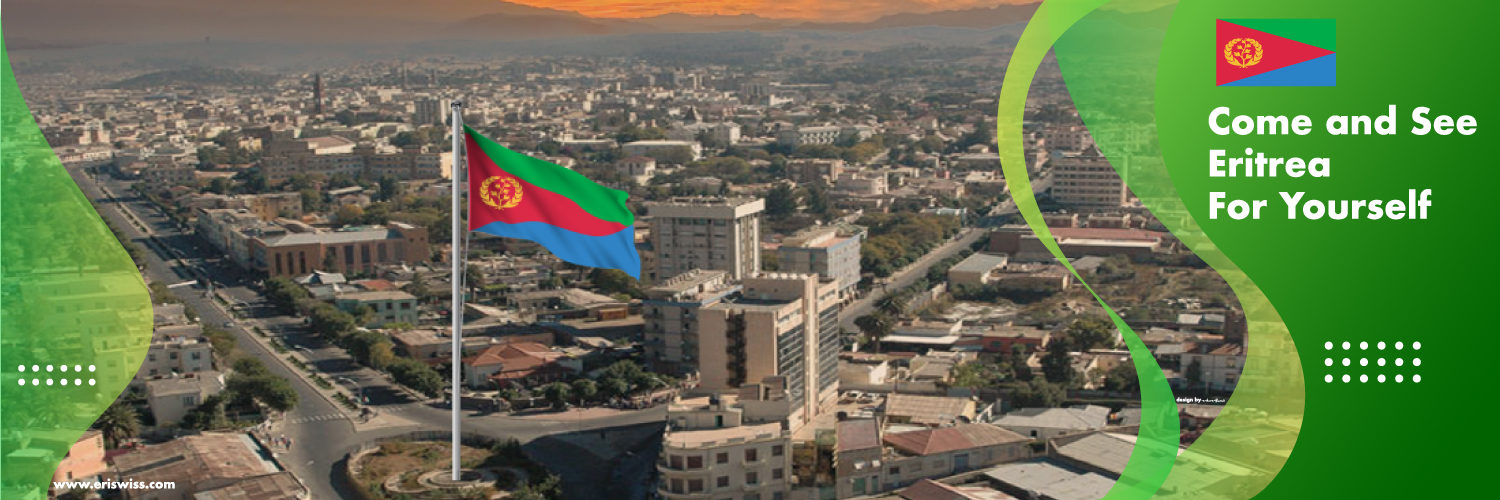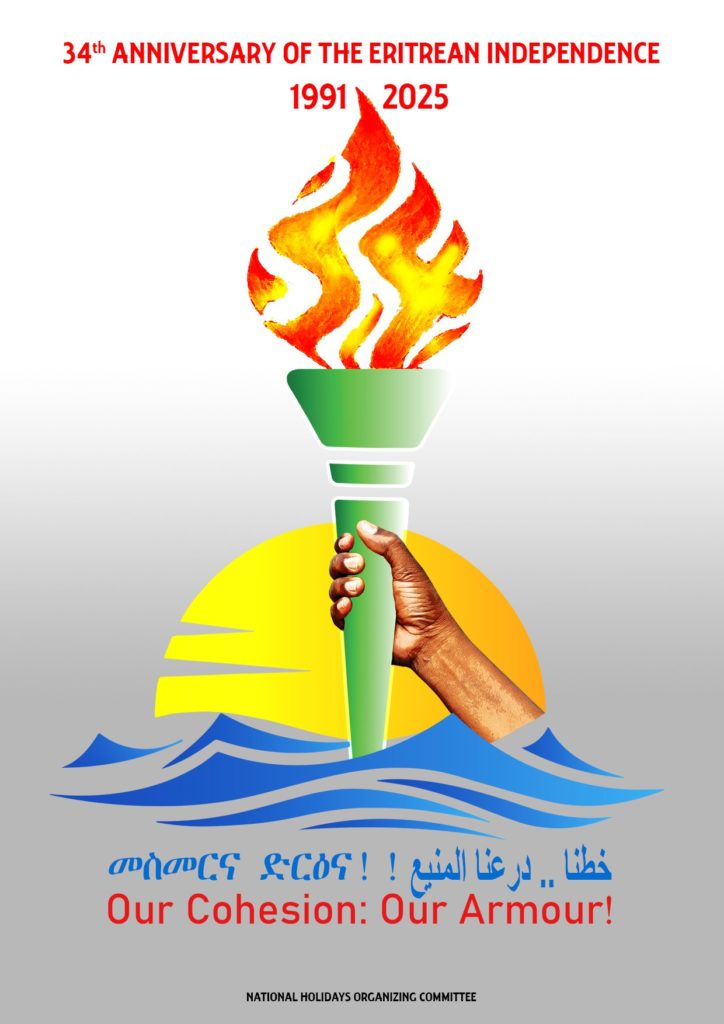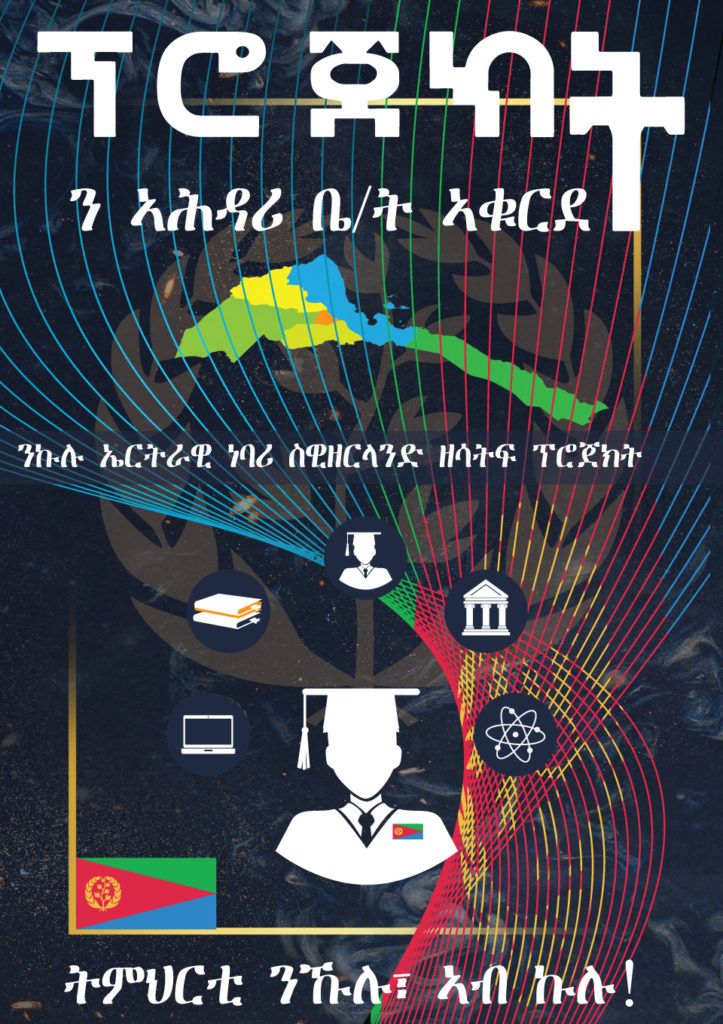Taking Control of our Multi-dimensional narrative
 Since its formation, the EPLF – which was reorganized as the PFDJ in post-independence Eritrea – has been consistent in its undertaking of three interconnected objectives: an independent political stance, self-reliance in terms of obviating structural dependency, and the promotion of a safe neighborhood that is conducive to enduring regional stability and mutual cooperation.
Since its formation, the EPLF – which was reorganized as the PFDJ in post-independence Eritrea – has been consistent in its undertaking of three interconnected objectives: an independent political stance, self-reliance in terms of obviating structural dependency, and the promotion of a safe neighborhood that is conducive to enduring regional stability and mutual cooperation.
Strange as it may sound, these laudable policy perspectives were nonetheless seen as “obstructive” to the overarching geopolitical objectives of certain powers. Indeed, US and UK diplomatic sabotage against Eritrea that dates back to the mid-1940s did not relent during the struggle for independence and even gathered more steam for the most part of Eritrea’s post-independence trajectory.
Explicit pronouncements by various US/EU officials these days corroborate the substance of this policy which was not flaunted with such audacity in earlier years.
The history of PFDJ unquestionably rhymes and juxtaposes with the contemporary history of the Eritrean people. So, any effort to demonize it and denigrate its admirable political, diplomatic, social, and military achievements should be viewed as an affront to the protracted struggle of the Eritrean people for self-determination and liberation. In this event, it is incumbent upon Eritreans to take control of the multi-dimensional narratives that define our recent history and our cohesive national identity. Allowing our detractors to do so will inevitably result in revisionist history, deliberate omissions, and misinformation.
In the following paragraphs, I will proceed to share what I consider brief but significant historical, political and diplomatic milestones that explain why the people and friends of Eritrea support the Government of Eritrea, (GOE).
- The predominant sub-nationalist ideology of the leaders of the Eritrean Revolution for Independence during the 60s escalated into a political crisis and gradually resulted in the formation of the Eritrean People’s Liberation Front in 1969.
- The formation of the EPLF engendered an unprecedented political and social transformation within Eritrean society.
- The highly committed, principled and politically astute EPLF leadership began to institutionalize radical political and social changes. Women were gradually emancipated from traditionally discriminatory and oppressive social practices and members of the lower social strata, both in the rural and urban areas, were empowered to pursue their economic and social objectives without fear of retribution.
- These radical economic and social changes allowed the disenfranchised members of society to realize, individually and collectively, their full potential and eventually make critically important political and military contributions both towards the long and difficult struggle for independence and liberation.
- Persistent political education supported by a vast and effective organizational network resulted in a high level of historical consciousness among Eritreans of every stripe.
- At the outset, the EPLF leadership formulated a brilliant military strategy taking into account the protracted nature of the struggle and Ethiopia’s relative military and diplomatic advantage at the time.
- The strategy was effectively executed and the EPLF was able to achieve an impressive military victory over a vastly superior force.
- During challenging times, the EPLF leadership demonstrated resolve, resilience and farsightedness.
- In 1978, due to a massive military and intelligence support from the Soviet Union and its satellite nations, the Ethiopian regime gained a temporary tactical advantage. Consequently, the EPLF decided to execute a complicated, orderly and successful strategic withdrawal to the defensible Sahel mountains.
- The decision averted a potentially high human casualty and salvaged much needed material resources.
- The efficacy and long term positive impact of the historic decision was proven thirteen years later when the EPLF achieved a decisive victory over colonial Ethiopia and entered Asmara in May of 1991.
- Indeed, the EPLF single-handedly repulsed eight massive military offensives from 1978 to 1985. Its brilliant military strategy enabled it to initiate its offensive phase in March of 1987 and consummate it with a total victory in May of 1991.
- Through its resilience and resolve, the EPLF was able to overcome seemingly insurmountable military diplomatic challenges.
- During the long struggle for independence, the EPLF faced numerous diplomatic challenges in the form of threats, intimidation, sabotage and obfuscation. Despite the tremendous and persistent diplomatic pressure from various sources, the EPLF never abandoned its paramount objective: the right of the Eritrean people for self-determination.
- Although the EPLF was not signatory to any international conventions and treaties, it treated the Ethiopian POWs with utmost humanity. Notwithstanding its meagre resources it looked after their medical needs and provided them adequate food rations.
- EPLF’s magnanimity was also demonstrated during the final phase of the independence movement. With the fall of Asmara on May 24th, 1991, wide news coverage at the time testified to the humane treatment of the tens of thousands of demoralized and dazed Ethiopian troops who were offered food and water as they, in droves, scrambled to trek West to the Sudan. Thousands more were bussed to Ethiopia. This stemmed from an embedded culture of magnanimity in the wider Eritrean society which was bolstered by consistent awareness campaigns throughout the liberation war which focused solely on the misguided policies of the incumbent occupationist regimes.
- Soon after independence, the EPLF-led government faced an international conspiracy that tested its ability to handle complex diplomatic matters and determination to protect the territorial integrity of the new nation.
- The farsightedness of the GOE was also demonstrated when in it established the National Service with Proclamation 82/1995. The institution played a critical role in bringing together Eritrea’s diverse population, guaranteeing Eritrea’s defense capability, inculcating PFDJ’s civic ideals and values and preparing a generation of Eritrean youth for national development as well as for the defense of the sovereignty and territorial integrity of the nation.
- In 1995, emboldened by anti-Eritrean international actors, the government of Yemen engaged in provocative diplomatic maneuvers “to establish facts on the ground” with regard to the Hanish Archipelago. The Eritrean government was forced to protect its internationally recognized sovereign territories. The case was adjudicated by the Permanent Court of Arbitration (PCA) in The Hague. True to form the Eritrean Government abided by the Court’s decision and the conflict was resolved.
- Similarly, in May of 1998 the anti-Eritrean forces in the US and Europe conspired with a kleptocratic government in Ethiopia to destabilize Eritrea in pursuit of an external policy of “regime change”.
- The TPLF regime in Ethiopia, emboldened by the massive intelligence, financial, military and diplomatic support from the US and the West, declared war on Eritrea in May of 1998. It launched three large-scale military offensives aimed at overthrowing the government of Eritrea. Unable to achieve its military and political objectives, the junta was forced to sign a comprehensive Algiers Peace Agreement in December of 2000. The Eritrean Ethiopian Border Commission (EEBC), awarded the “casus belli” of the “border conflict” to its rightful owner, Eritrea, in April of 2002.
- The guarantors of the Peace Agreement – the US, UN, and the AU – rather than bringing pressure to bear on the Ethiopian regime to move forward with the demarcation of the border, allowed it to prevaricate and hold Eritrea A ploy aimed at causing social unrest and political instability in Eritrea. The GOE remained steadfast in its commitment to abide by international law and appealed to the UN to shoulder its responsibility and enforce its mandate.
- Over a protracted period of time, GOE’s consistent adherence to, and respect for, international law exposed the TPLF regime’s intransigence and duplicity. Its suppressive and divisive policy of ethnicity and total monopoly of political, military and economic power in Ethiopia ultimately lead to its eventual downfall in 2018.
- Since its formation the EPLF showed a strong commitment to social justice. In the liberated zones, it had designed and implemented an impeccable social justice program by providing a wide range of social services. In the post-independence period, the GOE further consolidated the policy of social-justice as a key pillar of its developmental objectives. To this end, it implemented large-scale, nation-wide programs and projects of equity to services and opportunities in education, health, and other vital sectors of the economy.


